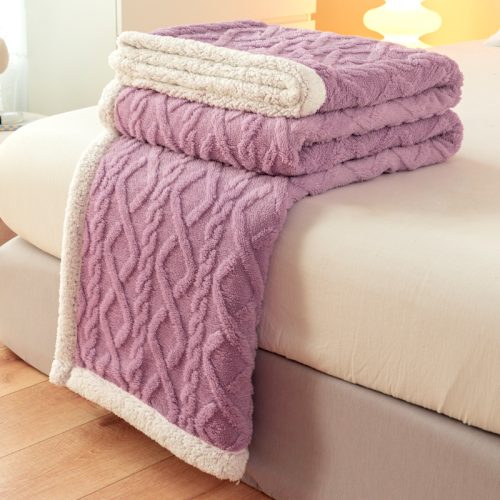Wool blankets are often considered a sustainable choice for a variety of reasons, making them an eco-friendly option for those who prioritize environmental responsibility. Here’s why wool blankets are a sustainable choice:
- Renewable Resource: Wool is a natural fiber obtained from the fleece of sheep and other animals like alpacas and goats. These animals produce wool annually, making it a renewable resource.
- Biodegradability: Wool is biodegradable, meaning it can naturally break down over time without causing harm to the environment. When disposed of properly, wool fibers will decompose and return to the earth.
- Low Environmental Impact: The production of wool typically has a lower environmental impact compared to synthetic materials like polyester. Wool production often involves fewer chemicals and fossil fuels.
- Reduced Energy Use: The energy requirements for processing and manufacturing wool are generally lower than those for synthetic materials, contributing to a reduced carbon footprint.
- Durable and Long-Lasting: Wool is known for its durability, which means that wool blankets have a longer lifespan compared to many other types of blankets. A longer lifespan reduces the need for frequent replacement and, in turn, reduces waste.
- Insulating Properties: Wool is an excellent natural insulator, helping to keep you warm in the winter and cool in the summer. This can reduce the need for excessive heating and cooling in your home, leading to energy savings.
- Responsible Farming Practices: Many sheep farmers are adopting sustainable and ethical farming practices, including responsible land management and animal welfare standards, ensuring a more eco-friendly wool production process.
- Support for Local Economies: Purchasing wool blankets often supports local and rural economies, especially in regions with a strong tradition of sheep farming and wool production.
- Low Chemical Usage: Wool typically requires fewer chemicals for processing and dyeing compared to synthetic fibers, reducing the environmental impact of chemical runoff and waste.
- Natural Fire Resistance: Wool is naturally fire-resistant, reducing the need for chemical flame retardants often found in synthetic materials.
- Natural Moisture Management: Wool can absorb moisture without feeling damp, reducing the need for synthetic moisture-wicking treatments in blankets.
It’s important to note that the sustainability of wool blankets can vary depending on factors such as farming practices, processing methods, and dyeing techniques. To make the most sustainable choice, look for certifications like “Certified Organic” or “Responsibly Sourced” when purchasing wool products, as these indicate a commitment to environmentally friendly and ethical practices throughout the production chain.
In summary, wool blankets are a sustainable choice due to their renewable nature, biodegradability, durability, low environmental impact, and the potential for ethical and responsible production practices. Choosing wool blankets can be an environmentally conscious decision that contributes to a more sustainable lifestyle.


